Global strategies for global markets
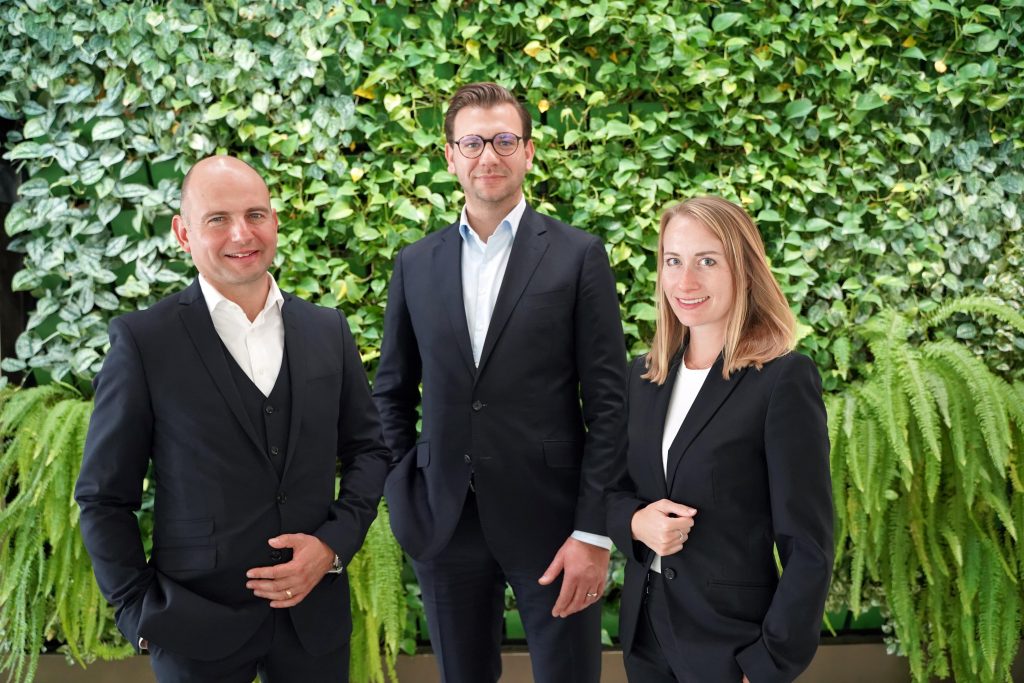
Even before the fresh produce business was bundled in the new BayWa Global Produce GmbH, the BayWa Group was already strongly positioned in the international fruit and vegetable markets. Does this mean that BayWa is now one of the global players in the business?
Benedikt Mangold: In fact, BayWa already gained access to global growth markets with the acquisition of T&G Global in 2012 and further expanded this in 2016 with the takeover of the exotic fruit specialist TFC Holland. Our entry into the production of tomatoes in the United Arab Emirates also underlines this ambition. There, we have been producing in two climate-controlled greenhouses for local retailers since 2018. With the spin-off into BayWa Global Produce GmbH, we have now organized the entire fresh produce business, which also includes the German fruit business of BayWa Obst, in a new structure. In this way, we are centralizing the activities of all shareholdings in one company with central management for joint and targeted positioning in the market. But that’s not all. With an overarching strategy, we are building on the existing strengths of our portfolio. The aim is to leverage the growing demand and thus the potential in the fruit and vegetable sector through investments and partnerships, and to further expand them.
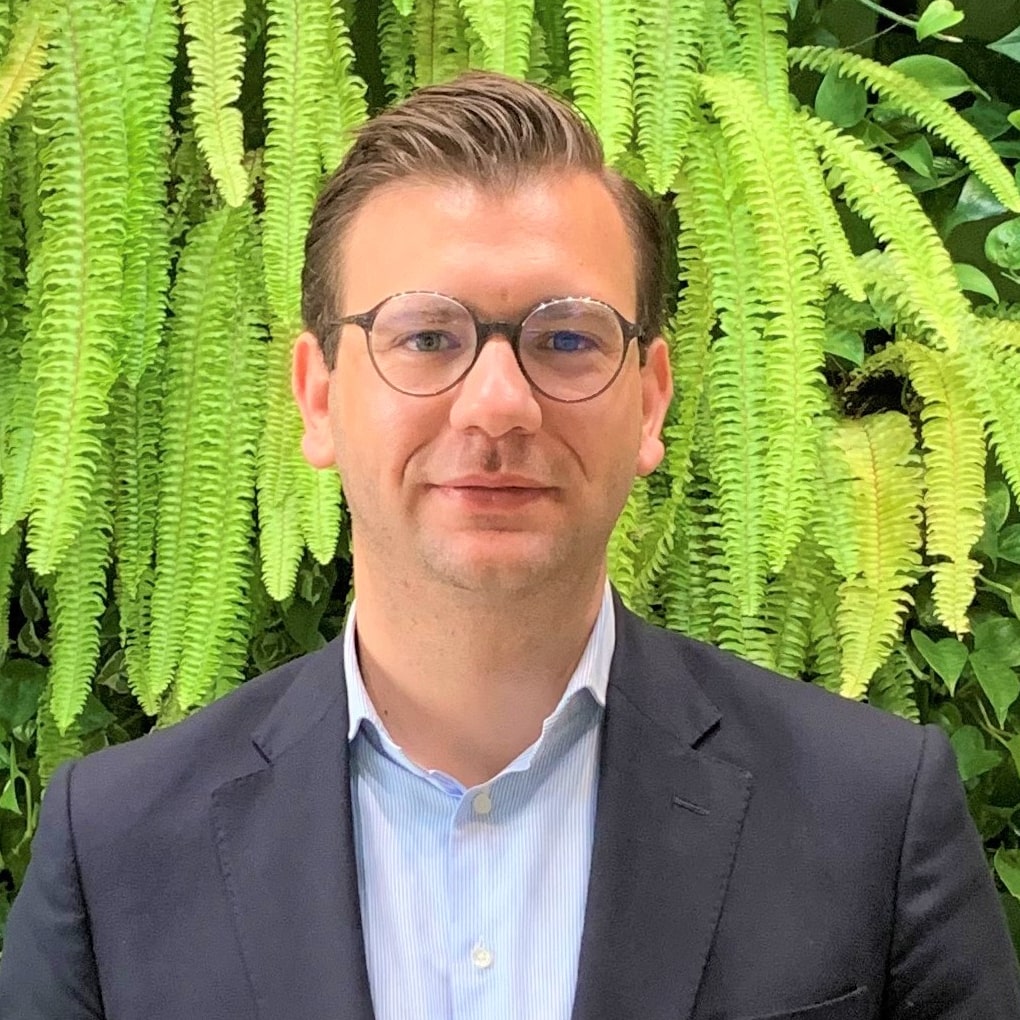
Benedikt Mangold
CEO
BayWa GP
All our fruit sites in Europe have been climate-neutral since 2018.
What are the concrete strategic advantages and synergies for the four subsidiaries as a result of the bundling?
Katelyn Jones: The strategic advantages result on the one hand from the broad positioning in procurement and marketing of our attractive portfolio with its valuable products and brands. But also from our global network where we can exchange know-how, learn from each other and promote innovation more quickly. Essential, however, is our overarching strategy, which is based on the 4 pillars of variety development, cultivation, markets and sustainable innovations. By investing in these core businesses, we aim to create solid value-added chains in order to realise a sustainable added value for both our group and our stakeholders.
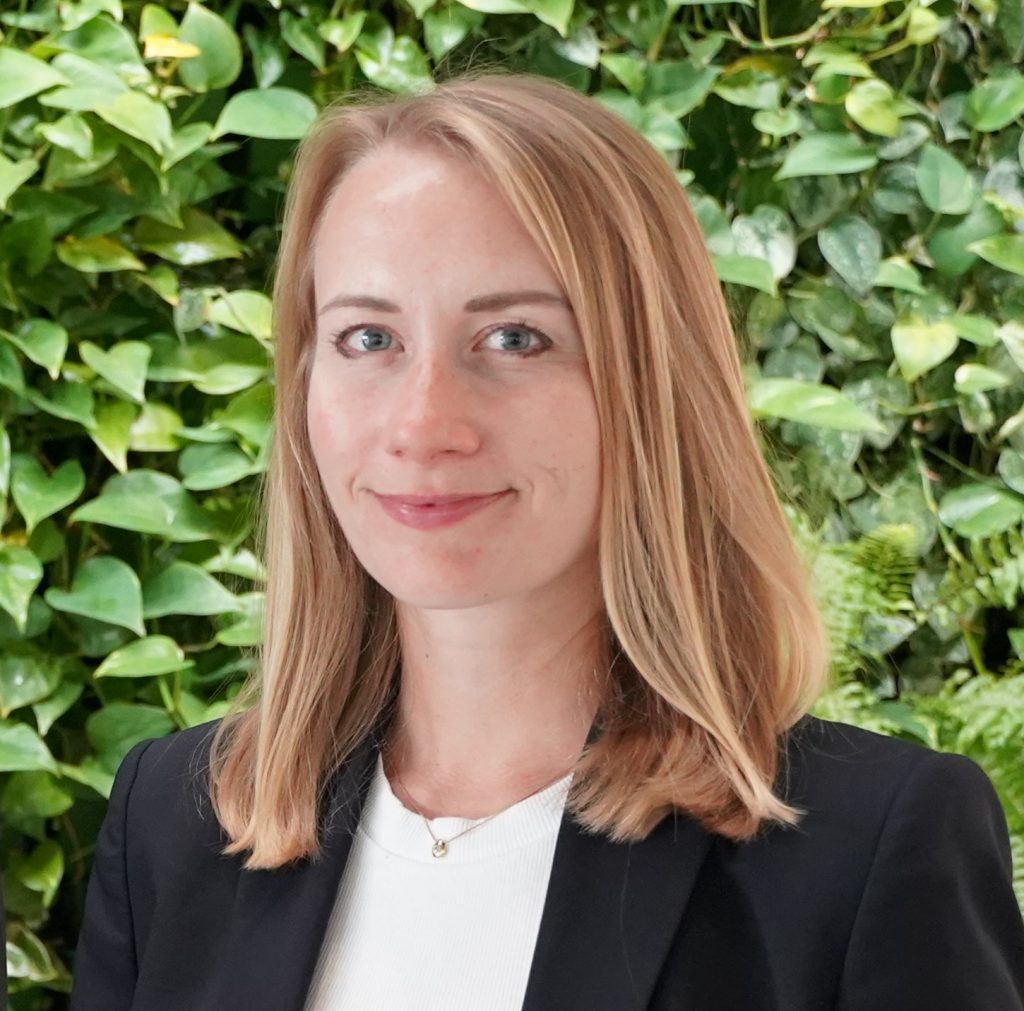
Katelyn Jones
CBDO
BayWa GP
It’s important for us to understand how we can help ensure that we do not farm at the expense of nature.
The pressure on international value-added chains has recently increased significantly due to complex customer requirements, but also due to framework conditions such as climate change or scarce raw material and container availability. Does the new structure increase your responsiveness to such factors?
Bastian von Streit: In an environment that is changing constantly and ever faster, we see stable and trusting partnerships in our industry as essential to counter volatility and create stability. In our view, this includes a broad procurement base, but also access to attractive markets worldwide to ensure the greatest possible flexibility. It is essential to have a local presence with employees in key markets in order to keep a close eye on the market and be able to respond quickly to changes. We also see strategic partnerships and cooperation as essential to achieve stable supply chains. Our strategy is geared to making us even more resilient, whether through attractive brands, the development of new varieties with our T&G subsidiary VentureFruit or innovative solutions along the entire value chain. After all, it is our aspiration to be a strong and reliable partner for our stakeholders worldwide, even under changing conditions.
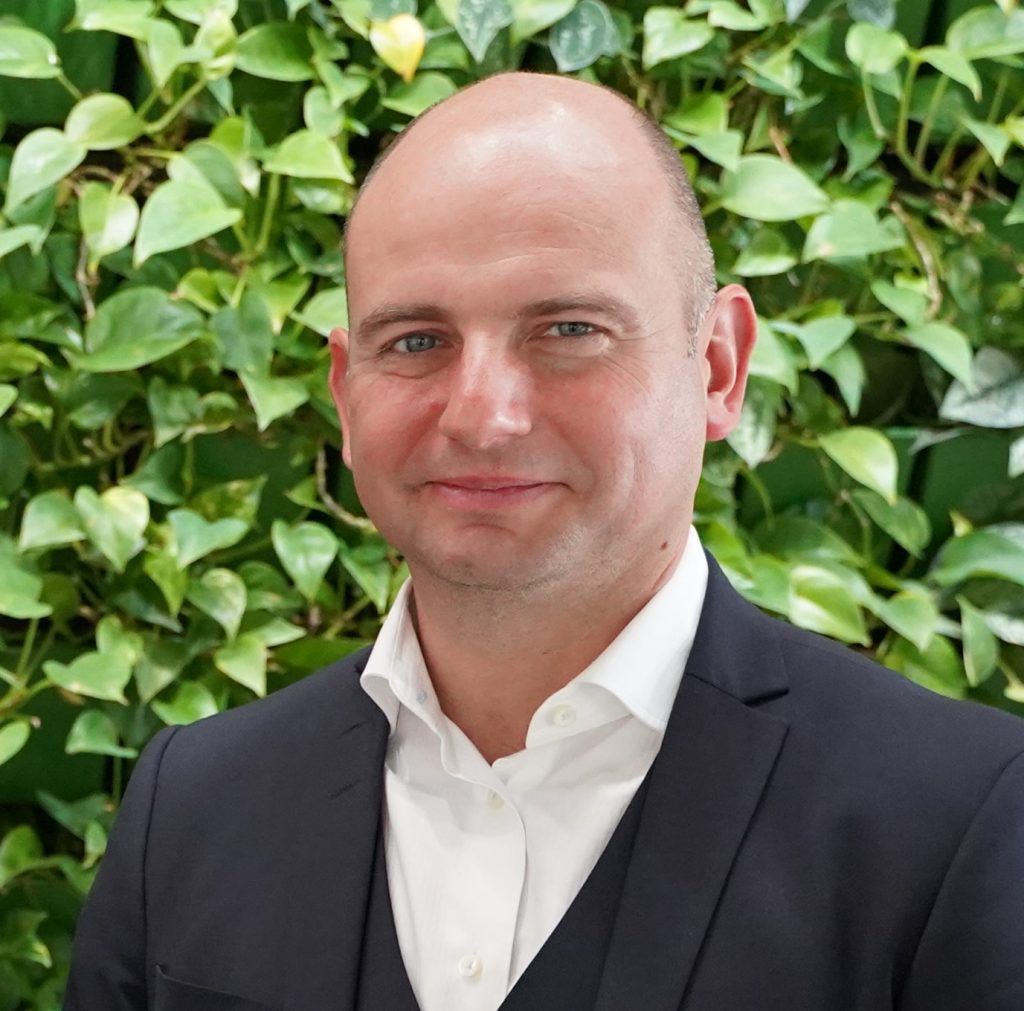
Bastian von Streit
CFO
BayWa GP
The manual labor-intensive sector of specialty crop in particular is facing growing challenges
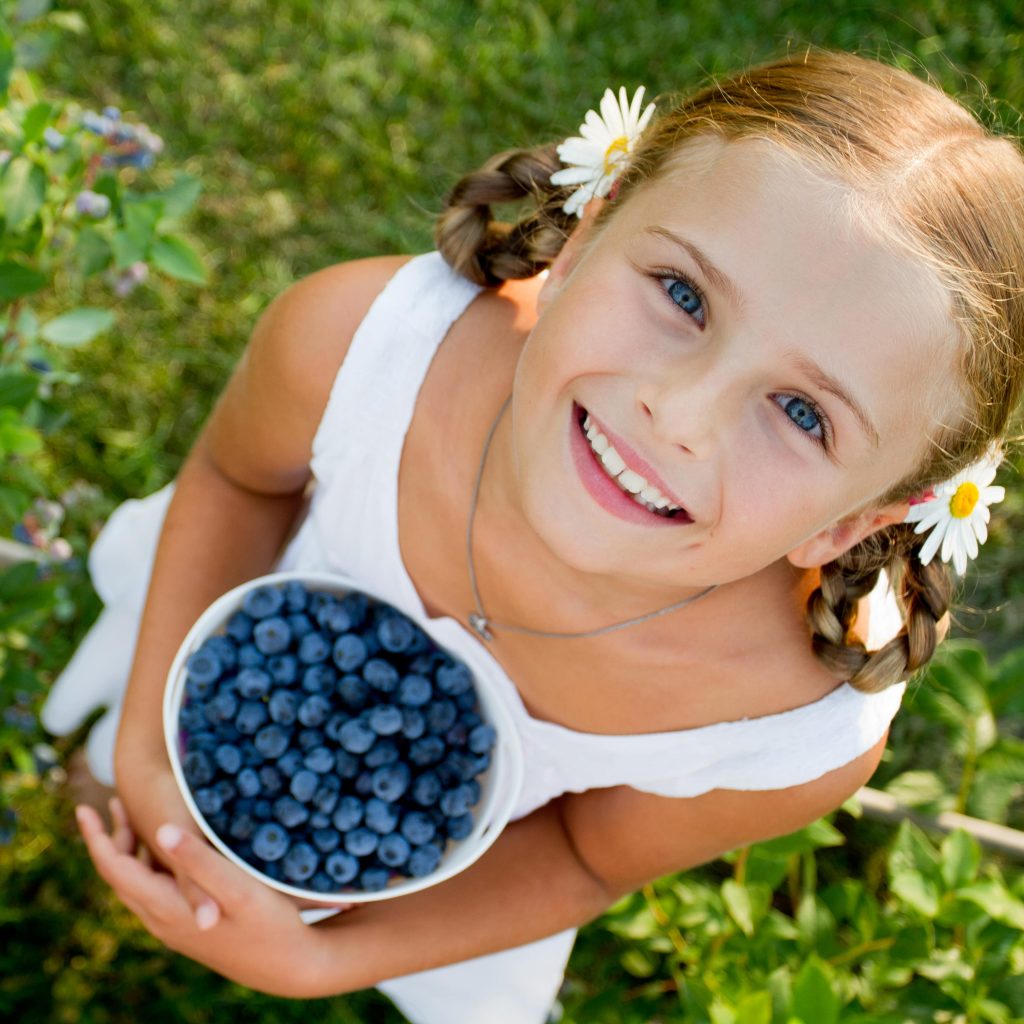
To what extent can retail customers also benefit from the bundling of the fresh produce business?
Katelyn Jones: We want to provide our stakeholders, and therefore also retailers, with forward-looking answers to key questions along our supply chains. We are living up to this ambition, for example, by increasing our commitment to the development of new, attractive varieties or by offering our customers faster and more efficient delivery routes. We have a strong portfolio with attractive brands such as Jazz™ and Envy™ to be proud of, so going forward, the focus will be to continue to invest in our core businesses in order to maximize the supply potential for growers, customers and consumers. Ultimately, bundling these business allows us to work in a more agile and efficient way, which contributes to shared success for us, our growers and our customers.along the entire value chain. After all, it is our aspiration to be a strong and reliable partner for our stakeholders worldwide, even under changing conditions.
Does – or if so, to what extent does – this step affect global procurement and the supply of international markets? To which markets, and from which markets, will BayWa Global Produce GmbH expand further in the future?
Benedikt Mangold: If you look at the different business models of the individual affiliated companies, it quickly becomes clear that the differentiated positioning brings comes with a greater overall resilience to fluctuations in the market. This has a positive effect on our delivery and performance capabilities. In particular, our close cooperation and direct relationships with a large number of producers in various countries allow us to serve our customers first-hand. This broad base enables us to cushion both crop fluctuations and logistical bottlenecks. At the same time, access to over 60 markets worldwide enables us to place our products in a targeted manner. We will therefore continue to invest in the Asian emerging markets, for example, and further expand our in-market presence. But as part of our strategy, Europe, too, will play an increasing role in various thematic areas.
What significance will Europe – and Germany in particular – have as a sales region compared to the still dynamically growing markets in the Middle and Far East?
Benedikt Mangold: Europe, and Germany in particular, is and remains an important market for us. Both for pome fruit and for exotics. Here, changes in demand have become apparent in recent years – both in terms of the products themselves and the general conditions under which they are produced. The focus of the younger target group in particular is increasingly shifting toward sustainability and the responsible use of resources and food. A look at sales by shopping location also reveals a reorientation on the part of consumers. Stinginess no longer seems to be so cool, if I may put it that way. We are convinced that, moving forward, high-quality, tasty products and sustainable production methods at all levels will be the key to successful positioning in the market. In doing so, we see it as particularly important to “take” consumers along on this journey and to stay in the conversation in order to demonstrate the industry’s commitment to responsible products and to make it clear that this added value can and even must be worth more.
Topics such as robotization and automation, greenhouse technology and digitalization have long played a central role in BayWa’s research departments. Which product segments in the fruit and vegetable sector do you think will be able to benefit most from this in the future?
Bastian von Streit: That’s right, BayWa has been dealing with the challenges in the food chain for many years and is focusing on innovative solutions in order to ensure the production of high-quality food in its function as a basic supplier in the future as well. In our view, the need for innovative solutions is particularly high in the case of fruit and vegetables. Not only with regard to the required higher climate resilience, but also with regard to the topic of automation. The manual, labor-intensive sector of specialty crop in particular is facing growing challenges. Seasonal workers are hard to come by: this can affect crop care, but even more so harvest and post-harvest processes. New approaches are needed here. Situations like last year in New Zealand, where not all fruit, especially apples, could be completely harvested and shipped, have a major impact on our business. But there is also a need for new approaches to growing: whether in the areas of resilient varieties, irrigation or concerning new approaches such as Agri-PV. Within the group, but also beyond, there are cross-divisional partnerships and collaborations that we will continue to develop in a enriching way.
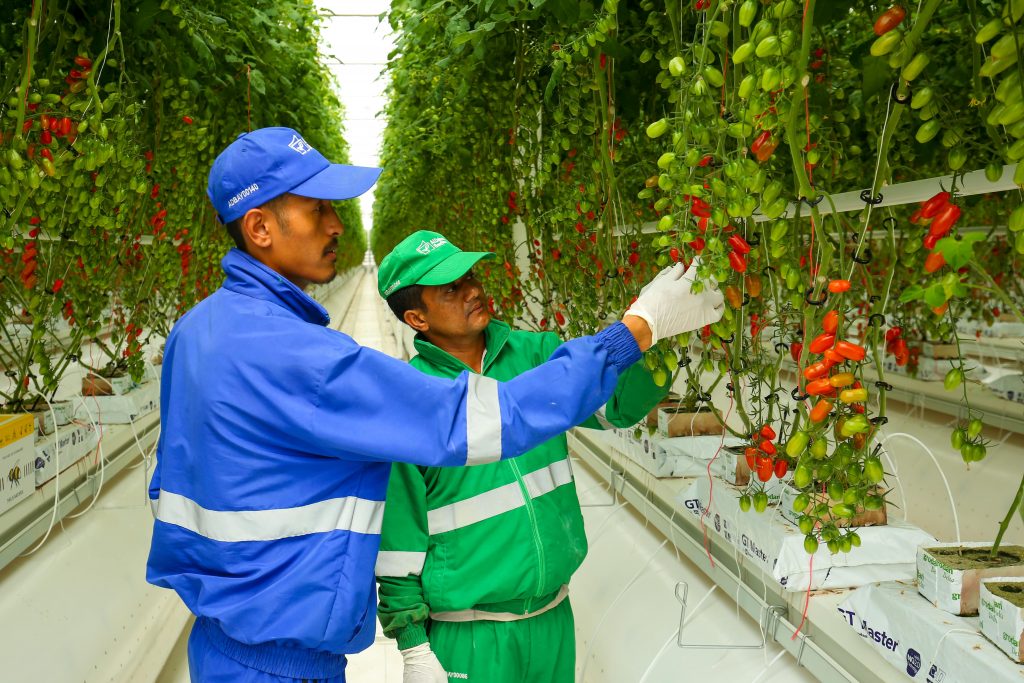
Today, of course, value chains cannot be evaluated solely on the basis of efficiency criteria. The requirements of consumers and trade customers in terms of sustainability, climate protection and corporate social responsibility are also becoming more stringent every year. How do you see BayWa Global Produce GmbH positioned in this regard?
Bastian von Streit: We are following these developments very closely and have already taken proactive measures. When developing our growth strategy, we place a strong focus on long-term partnerships and ecological, economic and social sustainability aspects that we see both as guidance and benchmarks. And we have already achieved quite a bit. For example, all our fruit sites in Europe have been climate-neutral since 2018, and in Germany we produce our own electricity on the roofs of our storage and packing sites. Even more: since 2020, all BayWa sites worldwide have been sourcing 100% green electricity. In New Zealand, we are currently building a biogas plant together with an energy supplier in order to convert organic material from our greenhouses and food waste from the region into energy and carbon dioxide that can be fed back into the greenhouse. We are also always looking for new packaging solutions for our products. The topic of sustainability is particularly interesting, but also complex, as many decisions are required to set the right course for the future. That is why we have had a Sustainability Manager on the team for several years now and are working on a comprehensive sustainability strategy for our BayWa Global Produce family.
In New Zealand, a project to promote regenerative fruit growing practices was recently launched between T&G Global, Zespri and Plant & Food Research. Could this also serve as a model for other regions?
Katelyn Jones: Responsible use of natural resources and the reduction of CO2 emissions for active climate protection are important to us. Climate change impressively shows us what it means for food production when resources are scarce. That is why it is important for us to understand how we can help ensure that we do not farm at the expense of nature. This project, now underway in New Zealand, aims to create a better understanding of regenerative approaches to production, but also to show how they can be combined with our existing sustainability efforts. In traditional arable farming, for example, there is already much more experience in this regard. This makes it all the more important for our industry to tie in with our own research in fruit growing in order to remain competitive on the global market and meet consumer expectations of our high-quality products. And not just in New Zealand, but everywhere we operate.
How does the bundling actually affect the branding of the products?
Benedikt Mangold: The bundling of the fresh produce business under a separate company is a major milestone in our history. That’s why it was important to us to emphasize this with an independent logo. On the one hand, the new image visually builds on BayWa’s solid foundation, but at the same time it uses organic shapes to put our natural products in the spotlight. Since BayWa Global Produce GmbH operates as a holding company without its own operational business, the new logo will have no direct impact on the branding of our products themselves. However, we can reveal at this point that the new monochrome design will play a significant role in future projects and underline our high standards of sustainability.